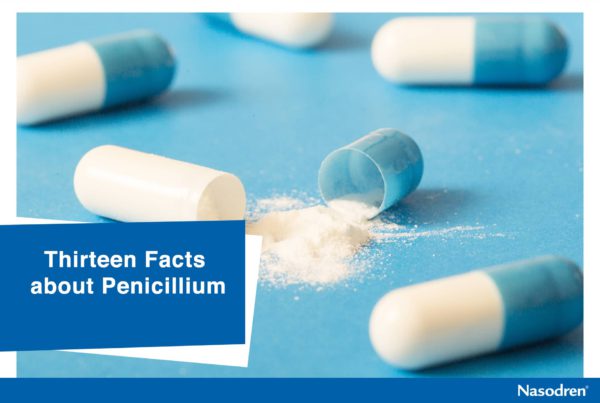ANALGESICS AND ANTI-INFLAMMATORIES
Pharmacological sinusitis treatments
Acetyl salicylic acid: it produces analgesia by blocking the synthesis of prostaglandins mediated by the inhibition of cyclooxygenase.Paracetamol: It peripherally blocks pain impulses through the reversible inhibition of cyclooxygenase, the enzyme that intervenes in the synthesis of the prostaglandins.Ibuprofen: Non-steroidal anti-inflammatory (NSAIDs) belonging to the group of the arylpropionic acids, which act by preventing the synthesis of prostaglandins.
- Do not treat for more than 10 days.
- Alcoholic drinks should not be ingested.
- The recommended therapeutic doses should not be exceeded in any of the three.
Acetylsalicylic acid: the orally disintegrating forms can be dissolved directly in the mouth, it is not necessary to drink liquids. The other forms must be taken with milk, water or fruit juices.Ibuprofen: All the oral forms, even the orally disintegrating ones, must be taken with water, milk or fruit juice.
- The use of aspirin and ibuprofen is contraindicated in patients that have had asthmatic crises.
- In prolonged aspirin and ibuprofen treatments, the patient should be monitored carefully to detect possible signs and symptoms of ulcers or gastrointestinal haemorrhage.
- Paracetamol should be monitored due to its possible hepatotoxicity.
- Adverse effects include nausea, gastric acidity, dyspepsia, urticary and exanthematic reactions.
- Patients with hypertension should be monitored if treated with acetyl salicylic acid or ibuprofen.
Acetyl salicylic acid and ibuprofen:
- The administration of two or more NSAIDS can increase the risk of peptic ulcer.
- When administered with oral anticoagulants, they may cause haemorrhages.
- The simultaneous administration of ibuprofen-aspirin may reduce the antiplatelet properties of aspirin.
- When administered with certain medicinal products, such as corticosteroids, the risk of gastric haemorrhages is increased.
- Interactions with antihypertensive drugs.







